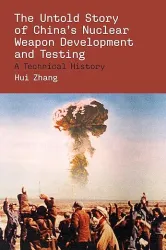"On March 11, 2011, a powerful earthquake struck the east coast of Japan. Fifty-six minutes later the seismic safety experts at the Vienna-based International Atomic Energy Agency (IAEA) concluded that the event, and its accompanying tsunami, could damage nuclear power plants in the region. The Agency's Incident and Emergency Centre was activated, declared to be in "full response mode" and staffed continuously 24 hours a day for the following 54 days. Approximately 200 agency personnel were diverted from their normal activities to the Fukushima disaster response, keeping in touch with Japanese authorities, advising concerned member states and coordinating offers of assistance. Fukushima-related activities ended up consuming all unencumbered funding in the agency's safety and security budget for 2012 as well as requiring a one-off transfer of funds from other major programs. This incident illustrates graphically the hand-to-mouth existence of what is popularly known as the "nuclear watchdog."...
Findlay, Trevor. “Sustaining the Nuclear Watchdog with a Grand Budgetary Bargain.” Bulletin of the Atomic Scientists, May 11, 2016





